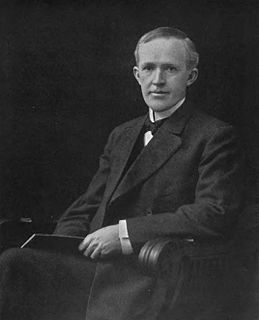A Quote by Katie Kitamura
There's a perception that good writing is writing which runs smoothly. But smooth-running prose can work against what you're trying to express in a novel.
Related Quotes
If I'm writing a novel, I'll probably get up in the morning, do email, perhaps blog, deal with emergencies, and then be off novel-writing around 1.00pm and stop around 6.00pm. And I'll be writing in longhand, a safe distance from my computer. If I'm not writing a novel, there is no schedule, and scripts and introductions and whatnot can find themselves being written at any time and on anything.
Writing has to do with truth-telling. When you're writing, let's say, an essay for a magazine, you try to tell the truth at every moment. You do your best to quote people accurately and get everything right. Writing a novel is a break from that: freedom. When you're writing a novel, you are in charge; you can beef things up.
I've quit writing screenplay [adaptations]. It's too much work. I don't look at writing a novel as work, because I only have to please myself. I have a good time sitting here by myself, thinking up situations and characters, getting them to talk - it's so satisfying. But screenwriting's different. You might think you're writing for yourself, but there are too many other people to please.
In high school, in 1956, at the age of sixteen, we were not taught "creative writing." We were taught literature and grammar. So no one ever told me I couldn't write both prose and poetry, and I started out writing all the things I still write: poetry, prose fiction - which took me longer to get published - and non-fiction prose.
When writing goes painfully, when it’s hideously difficult, and one feels real despair (ah, the despair, silly as it is, is real!)–then naturally one ought to continue with the work; it would be cowardly to retreat. But when writing goes smoothly–why then one certainly should keep on working, since it would be stupid to stop. Consequently one is always writing or should be writing.
I think I was also afraid of the novel. I write line by line, proceeding at snail's pace, rewriting as I go and paring the excess away. This is against all the best advice for writing long form prose, and I have tried over the years to break myself of the habit, but I can't bear to leave anything ungainly on the page and half the fun for me is that tinkering. So the length of a novel was a daunting prospect.
When I'm writing, especially when I'm writing in first person, I don't think about the characterization, or how they are going to express themselves, I just express my own approach to these things. I think most writers can never divorce themselves from their private lives and personas; they are the ones that are writing. And the more they remove themselves from their own persona, the more, perhaps, mechanical the work becomes.
Writing for adults and writing for young people is really not that different. As a reporter, I have always tried to write as clearly and simply as possible. I like clean, unadorned writing. So writing for a younger audience was largely an exercise in making my prose even more clear and direct, and in avoiding complicated digressions.






































